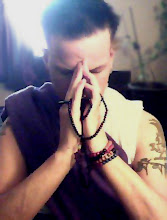Unforgiveness is a sign of ignorance. To understand is to forgive.
By unforgiveness I mean a particular attitude, and abiding state of mind rather than an initial emotional reaction. When we are hurt, our pain is natural. If we are trying to suppress or to ignore this feeling, we are not true to ourselves. If we deny an experience of pain, we miss an opportunity to learn a lesson which it brought. So, it is wise to allow ourselves to feel pain before we let it go.
Someone might object an idea that we need to accept our responsibility for all of our experiences. They say, in essence: "If a person suffers from an inferiority complex and feels bad about himself/herself, that person will sink deeper into guilt and self-condemnation after accepting responsibility for all the bad things that happened to him/her. This concept only brings people down and makes them depressed. It doesn't inspire them to greater achievements" .
It might be possible that for certain individuals the burden of reality is too heavy, and they have to believe in illusions for some time. It might be true that in some cases people are too weak emotionally to handle the truth. However, there could be no real healing of wounds or deep personal transformation without accepting of the truth. Truth makes people free, ignorance makes people bound. Surely enough, truth is not always pleasing to human ego. Nevertheless, it needs to be swallowed and assumed before we will break mental patterns which cause us to have painful experiences over and over.
How does our increased understanding helps us to forgive?
First of all, we put all the painful experiences in the context of our evolutionary development. Perhaps, people who have difficulties with accepting responsibility for their pain, still think of it in terms of punishment. But this is never the case. No consequence of our actions is a punishment, but every consequence is a lesson. It brings our attention to a certain area of our life where an inner change is needed. Attention directs our energy flow. "The other person" whom we might blame for something bad that happened to us, is but the outward expression of a particular mental state within ourselves we need to deal with.
For instance, there are some people who complain about "discrimination" and "prejudices" they encounter. But what they fail to understand is that within themselves, they are not so tolerant and open toward others. Those who feel that they are "oppressed", often are full or anger and resentment. If they would have enough power, they would become oppressors and discriminators, just the way people they condemn are.
Forgiveness begins when we stop complaining about life, and accept it as it is â€" as the starting point for making it better. Forgiveness involves our honest self-examination and getting rid of all self-imposed or socially conditioned negativity. If all the people around us feel bad about some group, it doesn't mean that we should blindly accept their attitude. Let us think and decide for ourselves! At the same time, let us not expect ourselves or others to be perfect. We all are in a state of transition. We all make mistakes. But our personal transformation is up to us â€" and as we become determined to work at ourselves, we discover that all seeming obstacles become helpful influences.
Subscribe to:
Post Comments (Atom)





No comments:
Post a Comment